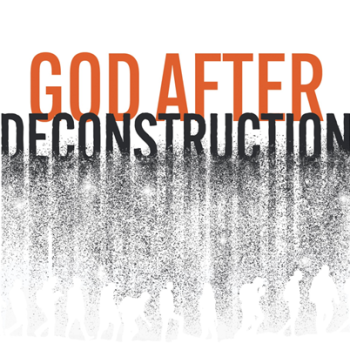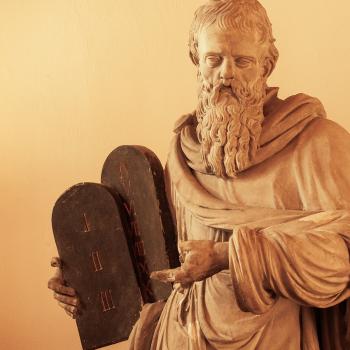
Image by Kasia / Pixabay
Christian theology has a long history of apologetics. While we might think of apologetics today as someone proving a literal 6-day creation or historical credibility of the Bible, the legacy of apologetics is rooted in philosophy. Christianity sprouted in the midst of Greek philosophy and has its fingerprint throughout the New Testament and the Early Church Fathers.
Philosophy has tried to define and prove that God exists. Different philosophers in different eras have put together arguments for the existence of God that have been held up and refuted. Let’s look at the ontological argument for God – God is because we conceive of God.
St. Anselm on How to Know God
St. Anselm of Canterbury, a Benedictine monk and Archbishop of Canterbury, was a medieval theologian and philosopher. He is probably best known for his argument for the existence of God in his work Proslogion. Written in the 11th century, Anselm wanted to put forth a logical argument for God.
Proposition 1: God is defined as the greatest conceivable being.
Proposition 2: It is greater to exist in reality than merely in the understanding (i.e., in the mind).
Proposition 3: If God only exists in the understanding and not in reality, then we can conceive of a greater being—namely, one that exists in both the understanding and in reality.
Proposition 4: But this contradicts the definition of God as the greatest conceivable being.
Conclusion: Therefore, God must exist not only in the understanding but also in reality.
Anselm is making assumptions in a few places here (but don’t we all?) about what is ‘great’. But to summarize his argument, God is the greatest being we can imagine. Anselm’s God is classically Christian in this way. With the definition out of the way, Anselm then adds a second piece to the puzzle.
He puts forth that it is better to exist in reality than not. For Anselm, to be in existence is better than to be an idea with no realized existence. Because we conceive a God who is the greatest Being, and because to be in existence is better than to not be in existence, logically this God must exist to fulfill the definition of God.
Descartes on How To Know God
17th century French philosopher René Descartes proposed a similar ontological argument for God. In his Meditations, Descartes introduces skepticism to our lives. His skeptical arguments are designed to cause us to pause before we claim what we know. He poses that, if we want to know something, we can’t have any reason to doubt that thing.
We start with doubting all arguments for truth that have come before us. If we can’t prove the original argument that started the ball rolling, we must discard the final product. This radial skepticism is step 1 for Descartes. Secondly, we must doubt our senses, because we often have vivid dreams that are hard to distinguish from reality. How do we know that we’re not reading this in a dream?
Finally, after discarding our given knowledge and senses, we must doubt everything that is left because of the Evil Demon. For Descartes, this hyperbolic doubt is used to break down our ability to know anything, because there may be a maleficent force that wants to trick us. This entity’s whole goal is to make us believe things that aren’t true about our reality.
Finally, we are left with doubting everything. Descartes sees this as the proof that we exist – something that doubts must exist to doubt. His argument cogito ergo sum (“I think therefore I am”) hinges on the necessity for a rational entity that is capable of doubt. Descartes then poses God as this necessary rational entity that guides us to rational thought.
What Now?
Both Anselm and Descartes’ arguments have been argued and refuted throughout the history of philosophy. Great thinkers like Kant, Heidegger, and Russell have posed issues with these lines of thought. While they argue these ideas from different positions, one major flaw they find is that God is a priori – or an assumed idea without evidence. For both theistic and atheistic philosophers, this can be problematic when trying to continue a discussion.
I don’t think either of these ideas are the ultimate answer to reality or God. I don’t even know if Anselm or Descartes would argue their position in light of modernity and modern philosophy. But I think these are interesting ideas that should lead us into a deeper discussion with ourselves and others on what it means to know God.

















